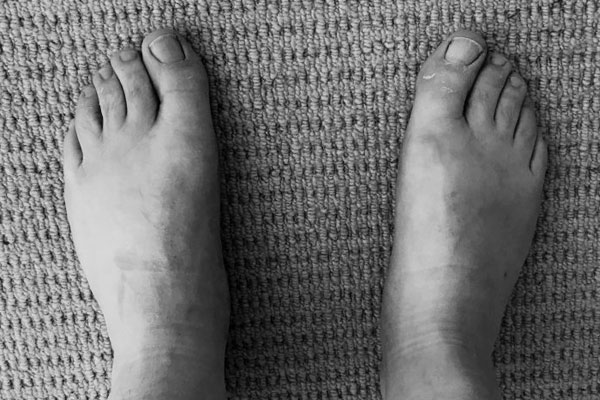
Gout is among the most diagnosed forms of inflammatory arthritis in the world. It can be an excruciatingly painful disease during acute flare-ups. As an early inflammatory arthritis specialist, gout is a condition I see rather frequently. I can say with confidence that it is very treatable.
This post will not get into the details of what gout is or what causes it. In a nutshell, gout is the result of a build-up of uric acid in the system. Sharp crystals form as a result of the uric acid. Those crystals can cause significant pain in the joints.
If you think you might have gout, it is important that you see a medical professional right away. My London office is accepting new patients if you’re interested in seeing a specialist. Otherwise, consult your GP. Gout could be the result of an underlying health condition, so it is not something to be taken lightly.
NSAIDs and Steroids
Arthritis specialists can approach gout in a number of different ways. In terms of addressing acute attacks, perhaps the most common treatment is found in non-steroidal anti-inflammatory (NSAID) drugs. Ibuprofen is one we like to start with because it is available without a prescription. Other NSAID options include naproxen and etoricoxib. Doctors tend to stay away from aspirin. Although it is in an NSAID, aspirin can exacerbate gout.
Steroids are an option if an acute attack does not respond to NSAIDs, or if taking NSAIDs causes stomach discomfort. We don’t like to use steroids for extended periods of time because they have their own side effects to worry about. Note that only corticosteroids are used to treat gout; we do not prescribe anabolic steroids.
Preventing Future Flare-ups
A secondary approach to gout is preventing future flare-ups. The more flare-ups we can prevent, the less likely patients will find gout debilitating. When preventative treatments are suggested, they can be both pharmacological and non-pharmacological.
Pharmacological treatments involve drugs like allopurinol; drugs that control uric acid levels. We often prescribe such drugs along with a 3-to-6-month course of an accompanying NSAID to manage inflammation.
Above and beyond drugs, gout can be treated long-term through a number of lifestyle changes. At the top of the list is maintaining a healthy and balanced diet designed to limit the foods that can encourage excess levels of uric acid. A healthy diet for gout patients would include avoiding sugary drinks and snacks, fatty foods, and offal – a.k.a. variety meats like liver and kidneys.
Other lifestyle changes include:
- Losing excess weight
- Maintaining a healthy weight
- Avoiding alcohol and tobacco
- Drinking plenty of fluids
- Regular exercise (low impact)
- Vitamin supplements (where appropriate).
We know that certain things can contribute to acute gout attacks. For example, dehydration is a big one. So arthritis specialists often seek to educate patients about such things. We recommend patients learn their particular triggers so as to avoid them.
Make an Appointment When You’re Ready
I have treated enough gout patients to know that this particular disease can be extremely painful during acute attacks. I urge you to make an appointment with my London office whenever you’re ready. Even though gout is a long-term condition with painful flare-ups, it can be managed with proper treatment. As a private rheumatologist in London, I am here to help you do just that.
Article by Dr. Naveen Bhadauria



